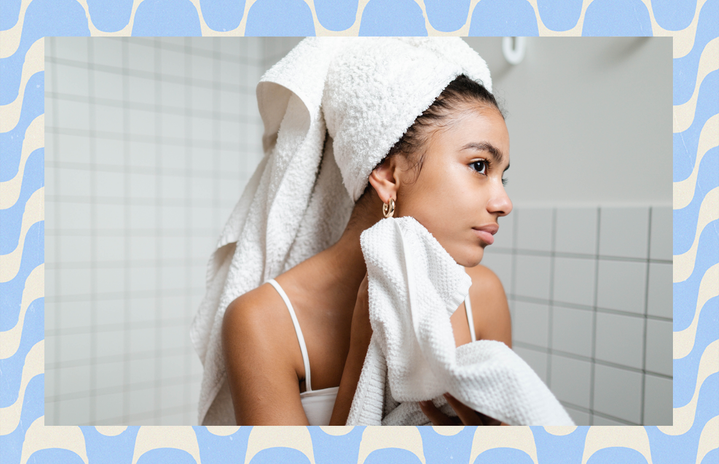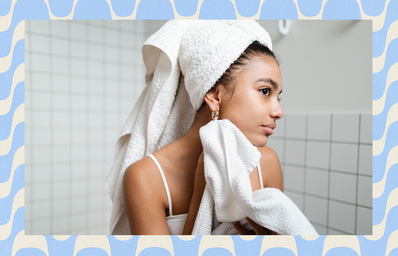It’s no secret that university is an incredibly stressful period of our lives. Practising regular self-care can sometimes get pushed down the list of priorities, however, it doesn’t always have to be expensive ‘health’ foods, gym memberships or forcing yourself to read a boring book because you think it’s helping you to ‘wind down’. Don’t get me wrong, self-care is certainly an essential practice that everyone should be doing every day, but simply looking after yourself shouldn’t feel like a chore. In fact, there are a number of different types of self-care which you can easily switch up to fit your routine without having to sacrifice too much time, money or dedication.
PHYSICAL
This seems to be one of the most basic forms of self-care that most people seem to identify with. However, the truth is it can be incredibly intimidating when you get a bunch of TikTok influencers screaming at you to start Reformer Pilates that you’d only be able to afford if you sold your left foot! Of course, getting out into the gym and being active is a great way to de-stress, not only reaping the benefits on your mental health but on your physical health too. Yet, if you simply don’t have the funds, don’t fret – there are so many other ways of maintaining a healthy physical self-care routine. Simply getting out of the house and into the sun every day through the form of walking or running can do wonders. I used to be a walk-a-day sceptic, but after going through a rough patch during first term of final year I can truly say I’m a convert – it really does soothe the soul and allows you to breathe when life gets stuffy. Secondly, eating well is another important factor in maintaining your physical health – consuming more fruits and veg and getting your daily vitamin intake is vital for keeping your body energised. Lastly, a few little less intimidating and somewhat obvious healthy habits that can sometimes be forgotten, particularly when going through tough times, can come in the form of simply brushing your teeth, showering regularly, drinking enough water, eating enough food, and getting enough sleep. Meeting these practices are more important than you might think for building a strong foundation for the rest of your daily self-care routine.
EMOTIONAL
Emotional self-care is another foundational practice that can come in the form of simple yet effective habits. For example, journaling or keeping a gratitude journal are great ways to end your day and provide outlets for any negative (or positive!) thoughts and feelings you’ve had throughout the day. Emotion, however, doesn’t always need to be expressed through the medium of pen and paper, but through other therapeutic means such as cooking and painting. Ultimately, making sure you’re doing activities that make you feel emotionally fulfilled on a daily basis, even down to just having a good laugh, builds a stronger mental self-care rapport.
SOCIAL
On a basic level, having a healthy and supportive circle of friends and spending time with loved ones is a great way to maintain social self-care as it provides you with a strong support system and helps you feel validated and loved. However, there sometimes comes a point when a relationship or friendship can become draining, so tuning out any negative people in your life (or ‘protecting your peace’) and setting boundaries are also essential. Focus on surrounding yourself with people who make you happy, but also accept that you don’t have to be around people all the time – having a night to yourself is no crime!
FINANCIAL
It’s a given that when we are faced with financial troubles it can really bring our mood down, cause a lot of stress and anxiety and be very hard to shake off. To make it easier, practising financial self-care by keeping track of what you’re spending and creating a budget or savings plan can certainly ease the burden. Of course, it can be hard to budget at uni, especially with the temptation to go out every week and keep up the social life your mental health so desperately needs, but you shouldn’t have to feel ashamed for that. There are certainly many guides to budgeting whilst at university, as well as funding and grants if you really really need them. Don’t be afraid to ask for help. And when the time comes, and you want to treat yourself, be it simply buying a coffee or something more costly, you’ll be able to guilt-free. It’s also important to understand that financial self-care might not always be applicable if you truly don’t have enough money coming in. Making a few changes to your budgeting isn’t going to solve those realities, but it can certainly help with building a healthier relationship with money and finances.
WORK AND GOALS
If you’re in your final year like me, you’ll probably be having thoughts about your future, whether to focus on your academics, start applying for graduate jobs, take a year out, go travelling – it’s a headache. I must admit I still haven’t really got it figured out, but I’ve definitely helped myself by drawing up a rough plan for what I want to do next year. Of course, nothing is set in stone, and you can always change your path wherever it may take you – having a brief idea can’t hurt. Even if you are taking every day as it comes, even planning your next holiday or creating a vision board for this year is certainly one set toward practising work and goal self-care. In addition, ensuring that you are interacting in a healthy workplace and keeping on top of and organising work in and out of uni should make life that bit easier.
INTELLECTUAL
Sometimes all we need is something stimulating to do. People tend to forget that self-care isn’t just pamper nights and healthy eating but also caring and re-charging your brain. You can do just that by simply reading a book, listening to a podcast, or watching a documentary on something you’re interested in. Taking up new hobbies or even learning a new language; something that stimulates your brain is extremely important as a way to shift focus from the hectic life that is being a full-time student and giving yourself something different yet stimulating to feel a sense of accomplishment. Constantly overusing your brain on the same things can lead to serious burnout, so intellectual self-care is certainly a huge factor in retaining your sanity!
SPIRITUAL
Spiritual self-care doesn’t necessarily need to be related to religion or beliefs. A spiritual experience can come in the form of doing your favourite thing, and the complete sense of calm you feel doing that. For example, taking a long hot bath, doing a guided yoga session before bed, or just sitting with nature can add to your own personal spiritual sense of self-care.


